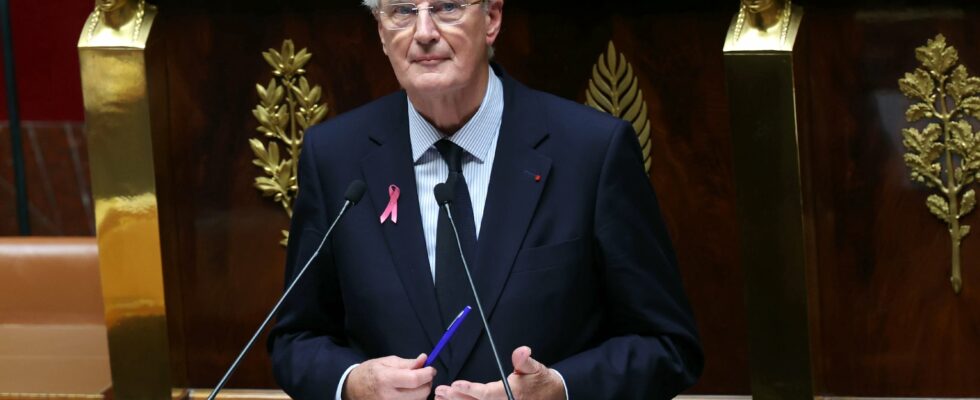The details of the 2025 budget desired by the Prime Minister will be clarified this Wednesday, October 2. After giving the broad outlines of the next finance bill during his general policy declaration on Tuesday, a government source revealed this Wednesday, October 2, some details on the content of the text that Michel Barnier will carry.
Quoted by AFP, this source first puts forward a date for the presentation of the 2025 budget: October 10, in the Council of Ministers. This date thus confirms the unprecedented delay of this finance bill, more than a week compared to the deadline set for October 1.
Certain measures of the finance bill will also be introduced by government amendments during the parliamentary debate, in order to allow Parliament to have the usual 70 days to debate the budget, with a view to promulgating the law before 1 January 2025. A debate which promises to be heated, while the details of the text reveal more savings than revenue to redress the public accounts.
40 billion in savings and 20 billion in revenue
Indeed, this government source confirms to AFP the strategy unveiled Tuesday by Michel Barnier: finding new tax revenue and, mainly, reducing public spending. The bill would thus provide for an effort of 60 billion euros, notably including just under 20 billion in new revenue.
In detail, this amount should include tax measures aimed at greening the economy, with 1.5 billion euros in favor of the ecological transition. They would target highly polluting transport in particular, with in particular a penalty for thermal vehicles, while the French air sector expects to be taxed an additional billion euros.
Above all, the emphasis is placed on the recovery of public accounts, planning around 40 billion euros in spending reductions. Among this amount, additional savings of 5 billion euros will be requested from ministries, and state operators (universities, France Travail, CNRS, etc.) will have to curb their spending to the tune of 1 billion euros.
A third of savings linked to social spending
Another avenue for advanced economies: the increase in health insurance spending will be more controlled, while local authorities will have to smooth out their spending, after having been accused by the outgoing government of having contributed to the public deficit slipping in 2024.
However, the flagship measure of these savings concerns social spending, with the postponement of the indexation of pensions from January 1 to July 1, 2025. The amounts of retirement pensions are usually revalued according to inflation on January 1 of each year.
Although we do not currently know the exact amount that this measure would save, we can estimate it. According to the Director of Social Security (DSS), Pierre Pribille, heard Wednesday morning in the Senate, the indexation of pensions in January 2024 (+ 5.3%) represented “an additional expense of around 15 billion euros” .
Risky under-indexation of pensions
The idea of using indexation to slow down public spending has been in the air since last spring. Former Budget Minister Thomas Cazenave had alluded to it in February, but the President of the Republic immediately expressed his opposition. In June, after the dissolution of the National Assembly, Emmanuel Macron repeated this position, estimating that “the purchasing power of retirees is not an adjustment variable”. This measure is indeed risky from an electoral perspective, given the large proportion of retirees among active voters.
However, this is regularly defended by economists and experts. These remind us that French retirees enjoy a better standard of living, compared to working people, than in many other countries. However, postponing the date of entry into force of indexation can also be seen as “another way of de-indexing” pensions from inflation, according to a note from the Foundation for Research on Administrations and Public Policies (Ifrap), a very liberal think tank.
In this note published in JuneIfrap indicated that this measure had already been put in place by previous French governments: in 2009, 2014, 2015 and 2018. The liberal influential group thus estimated that “since 2013, pensions will have lost 2 years and 9 months of reassessment” in total.
Growth and deficit estimates confirmed
Finally, the government source cited by AFP confirms the economic estimates mentioned by Michel Barnier in front of the Assembly on Tuesday: the government forecasts a drop in the public deficit to 6.1% of gross domestic product (GDP) in 2024, with the The objective of reducing it to 5% in 2025. GDP growth would reach 1.1% next year, as this year, indicated this government source.
Pinned for excessive deficit by Brussels and in the sights of the rating agencies which will decide on its sovereign rating in the coming weeks, France saw its debt swell to 3,228 billion euros at the end of June, or 112% of the GDP. This is the highest level of debt among EU countries, ahead of Greece and Italy.
If the government’s estimates are confirmed, the 2024 debt level should this time reach nearly 113% of GDP in 2024 and would flirt with 115% in 2025, before gradually decreasing as the deficit falls, according to the same source. With the hope of dropping this deficit below 3% of GDP in 2029, as Michel Barnier mentioned on Tuesday. That is, two years later than what was previously promised to the European Union.
